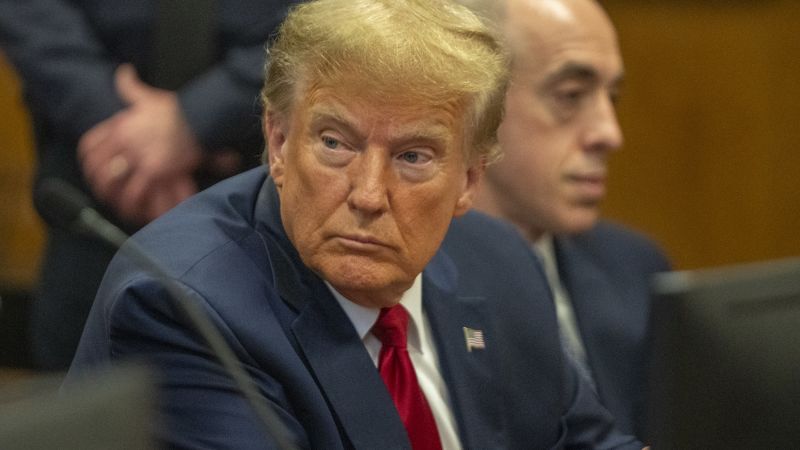A New York judge has issued a gag order on former President Donald Trump, restricting him from making statements about potential witnesses, attorneys, court staff, or the family members of prosecutors or lawyers involved in his upcoming criminal trial. The order also prohibits Trump from making statements about potential or actual jurors. The trial, set to begin on April 15, will deal with 34 counts of falsifying business records related to hush money payments made to adult film star Stormy Daniels before the 2016 election. Trump has pleaded not guilty and denied the alleged affair with Daniels.
Judge Juan Merchan’s gag order does not apply to New York District Attorney Alvin Bragg, who is a public figure involved in the case. The order aims to prevent interference with the trial by limiting Trump’s ability to make inflammatory public statements about those involved. The trial was initially delayed due to a dispute over the late production of documents but is now moving forward with jury selection on the scheduled date. Updates on this developing story will be provided as more information becomes available.
The criminal trial facing Trump is a historic moment, as the former president becomes the focus of legal proceedings related to his actions before and during his time in office. The charges against him stem from payments made to Michael Cohen, his former attorney, for the purpose of silencing Daniels about an alleged affair with Trump. The trial will examine whether Trump falsified business records in relation to these payments, with significant implications for his reputation and potential legal consequences if found guilty.
Trump’s plea of not guilty suggests that he will contest the charges brought against him, maintaining his innocence in the face of accusations of wrongdoing. The trial will provide an opportunity for the legal system to determine the truth of the allegations and hold Trump accountable if necessary. Trump’s actions and statements leading up to and during the trial will be closely scrutinized, given the high profile nature of the case and the implications for his political future and public image.
The gag order imposed on Trump reflects the judge’s concern about potential interference with the legal process and the importance of upholding the integrity of the trial. By limiting Trump’s ability to make inflammatory statements that could prejudice potential jurors or influence witnesses, the court aims to ensure a fair and impartial proceedings. The restrictions placed on Trump highlight the seriousness of the charges against him and the need for a transparent and unbiased trial process to determine the truth of the allegations and deliver justice.
As the trial progresses, the public will be closely following the developments and outcomes of the case, which has significant implications for Trump’s legacy and legal standing. The trial represents a critical moment in Trump’s post-presidency, as he faces legal consequences for his actions while in office. The outcome of the trial will have lasting repercussions for Trump’s reputation and political future, setting a precedent for accountability and transparency in addressing allegations of misconduct by public officials.















